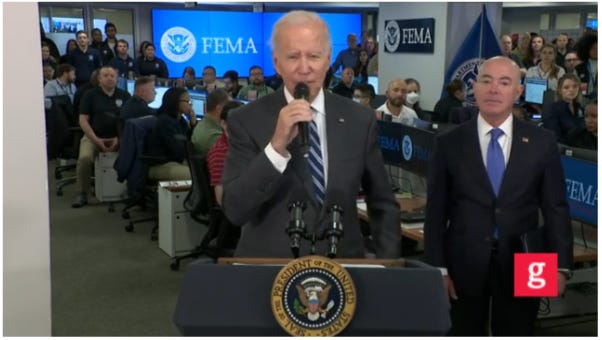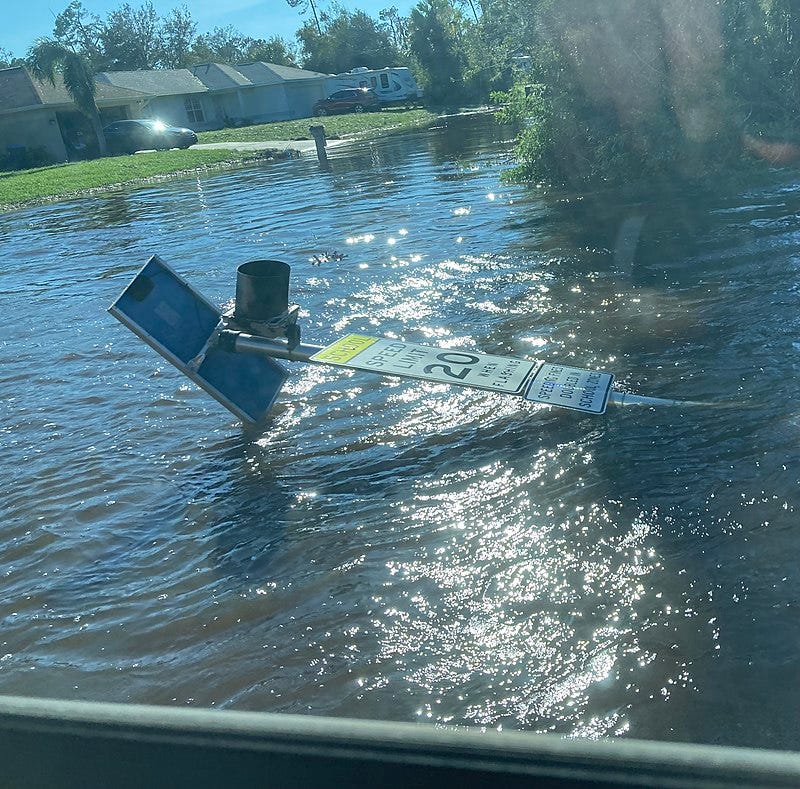Ian's Horrific Impact Once Again Throws Light On Climate Change
President Biden calls climate change an "existential threat"
The horrible — and deadly — impact of Hurricane Ian in Florida is only once again reminding governmental officials and others of the vital and urgent need to address, and attempt to mitigate the worst effects of, global climate change.
The ferocious storm, which hit the Florida peninsula as a Category 4 hurricane, has left more than 20 confirmed dead, millions left without power across the Sunshine State, and swaths of devastation that some officials already are saying could take years to recover from.
“Our commitment to tackling the climate crisis, which threatens all of us, we’re seeing the consequences of climate change around the world very vividly, including in the United States right now,” President Biden said Thursday in remarks Thursday before the first ever U.S.- Pacific Island Country Summit in Washington, DC. “And I know your nations feel it acutely and for you all it’s an existential threat. It’s an existential threat.”
The fact that so many officials and responders are called to address so many catastrophic storms only demonstrates the need to be serious about climate change created by the emission of greenhouse gases into the atmosphere, according to retired Adm. James Stavridis, former NATO Supreme Allied Commander Europe.
“And we’re pretty good at this, but at the end of the day, when you see one of those massive storms come in, and you know more are coming, you know we’re going to be dealing with this, as a nation, going into the future, if we can’t get climate under control,” he said in an on-camera appearance on MSNBC. “But in terms of behind the scenes, it’s a combination of Feds, you know, the FEMA crowd alongside our state responders, alongside first responders, local municipalities. I was so impressed with the mayor of St. Petersburg — on a few minutes ago. That’s the kind of quality leadership we have to deal in the state of Florida.”
Florida's terrible recent history with devastating hurricanes is a confluence of geography and the effects of climate change, according to Mika Brzezinski, co-host of MSNBC's Morning Joe program, citing a new story from The Washington Post.

“And as we’re covering what some are calling the storm of a lifetime, The Washington Post has a feature on why Florida is more prone to hurricanes. And it’s got a lot to do with the state’s unique geography,” Brzezinski said Thursday. “As the paper points out more than 41 percent of hurricanes in the United States have made some sort of landfall in Florida. The state juts into warm tropical waters directly in the paths of storms barrelling through the Caribbean.
“Florida also suffers some of the highest financial damage from hurricanes. That’s due in part to the rapid coastal development where roughly 76 percent of the state’s population lives by the water,” she added. “According to The Post, quote, 'While storm frequency has not trended upward, research shows hurricanes in the Atlantic have become more intense, partly driven by higher sea, surface temperatures, linked to human-caused climate change.'”
Please consider supporting our work by joining our Patreon for as little as $5…
Also, please subscribe…




